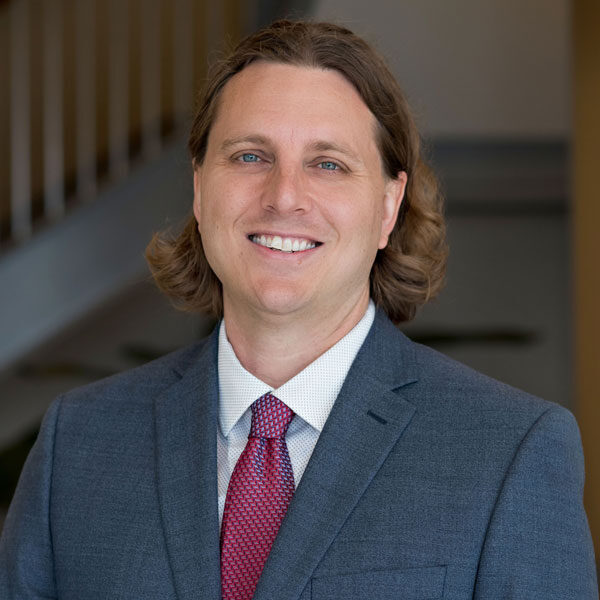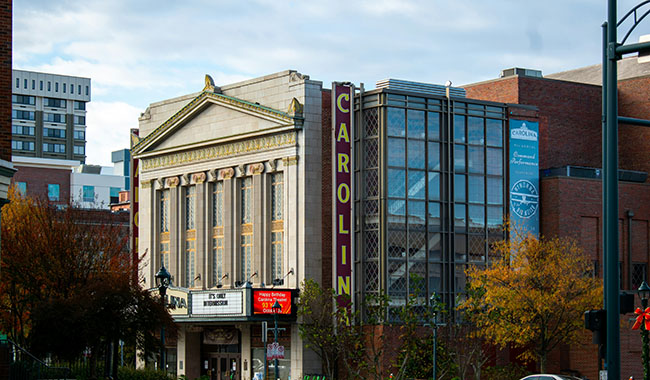You may have heard about the Jacksonville Affordable Housing Fund, a partnership to bring philanthropic dollars to leverage new capital for affordable housing projects in Jacksonville.
As local residents now say affordable housing is their #1 concern, The Community Foundation has been exploring this successful model with partners at the Jessie Ball duPont Fund, Northern Trust, and Self-Help Credit Union. The concept is a natural outgrowth of our impact investing experience, which started with donor-directed loans, expanded with the Local Capital Pool, and has now catalyzed the Jacksonville Affordable Housing Fund.
It’s an ambitious project, and The Community Foundation has been tapping into the expertise of our board as well as the national field of philanthropy to understand how to bring this model to Northeast Florida. This spring, James Coggin, MBA, Senior Director of Grantmaking and Impact Investing, helped organize a trip to Greensboro, North Carolina, where the Community Foundation of Greater Greensboro successfully stood up a similar housing fund.
We sat down with James to ask him a few questions about this trip and the housing fund.
Q: What inspired your visit to Greensboro? What has been successful about their project?
There were two things that stood out to us about Greensboro. First, The Community Foundation there played a leading role in capitalizing the fund. They provided the first-loss capital that is critical to raising the remainder of the fund, and to making the financing attractive to developers. Second, they partnered with Self-Help Credit Union, specifically, its Venture Fund, as the loan administrator. Self-Help Venture Fund is an important partner, because they have a billion-dollar balance sheet and provide recourse to investors. This is really what underpins the model and allows us to leverage philanthropic dollars – projecting to incentivize $80 million in affordable housing development through a $20 million investment.
Q: Who went on this trip, and what did you learn?
We were fortunate to have several key players able to join us. From our board, John Hirabayashi, former CEO of Community First Credit Union, attended. Several key members of our staff were present, including Isaiah M. Oliver, President, Grace Sacerdote, EVP and CFO, and Erin Broderick, Senior Director of Finance. John Donahoo of Northern Trust was there. And, of course, duPont has been with us every step of the way, and Chris Crothers, my counterpart and thought partner, helped plan the visit.
One of the major lessons learned for me was that it is possible for philanthropy and the private sector to stand this up as a pilot on their own – before engaging the public sector as a partner. The fund in Greensboro has a target of $32.5 million, and as of early 2024, had raised $21 million of that. Following the first pilot fund, their hope is to prove the model so that it can be scaled up in partnership with local government. That’s the type of approach we’re now taking here in Jacksonville, after the City of Jacksonville opted not to invest with us last year. We think this is an even better approach for our donors and partners, so we’re encouraged by what we learned there.
Q: What types of affordable housing have been built in Greensboro with this financing?
The Greensboro effort is focused on a slightly different type of affordable housing development than what we’ve proposed for Jacksonville. Given that 70% of Greensboro’s affordable housing stock is over 50 years old, the Community Foundation of Greater Greensboro and its partners chose to invest capital to preserve the existing housing stock. Here in Jacksonville, the focus is capitalizing low-income housing tax credit deals to develop new housing supply. This is apartment-style rental housing – one piece of the total picture of the housing we need to build to see more access, affordability, and opportunities for people to build equity through homeownership.
Q: What are the next steps for the Jacksonville Affordable Housing Fund, following this trip?
The three main partners in this effort right now – The Community Foundation, the duPont Fund, and Northern Trust – are quietly talking with donors and other investors about investing in this new approach – a $20 million fund that is entirely financed by private sector and philanthropic investments. We see it as one way The Community Foundation can bring valuable leadership to the region. Affordable housing is a problem affecting all of us, from those struggling to pay the rent, to business leaders that are trying to attract top talent. We believe that philanthropy has a role to play in addressing our affordable housing crisis.
Here to Help
For more information, contact:

